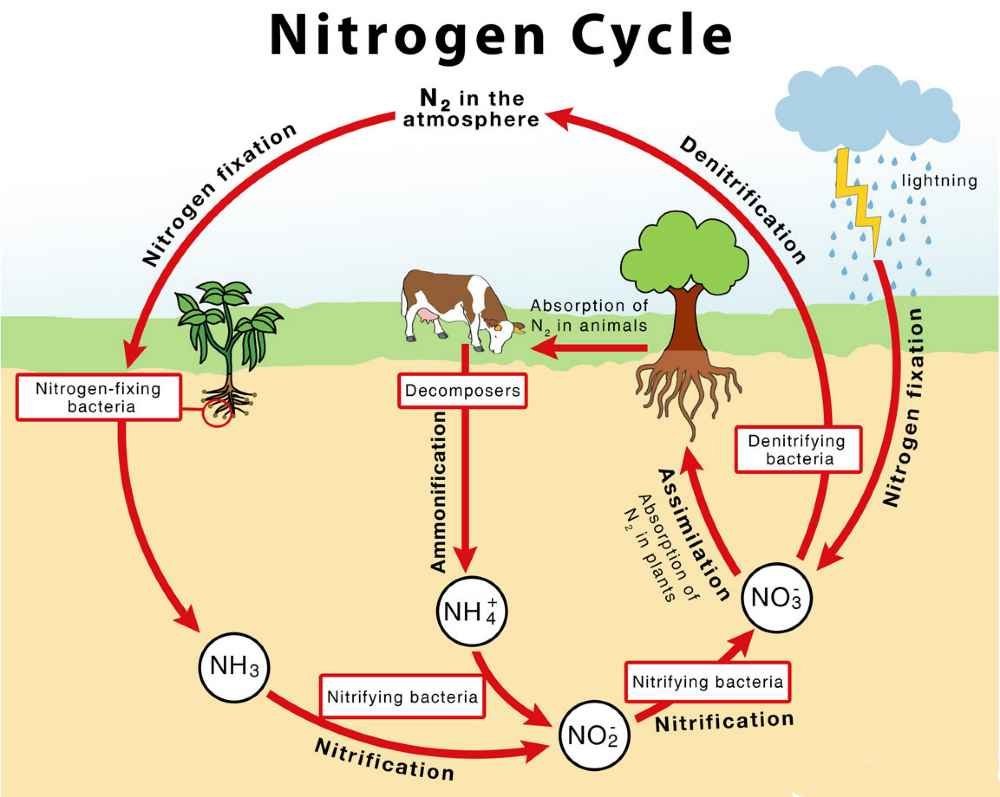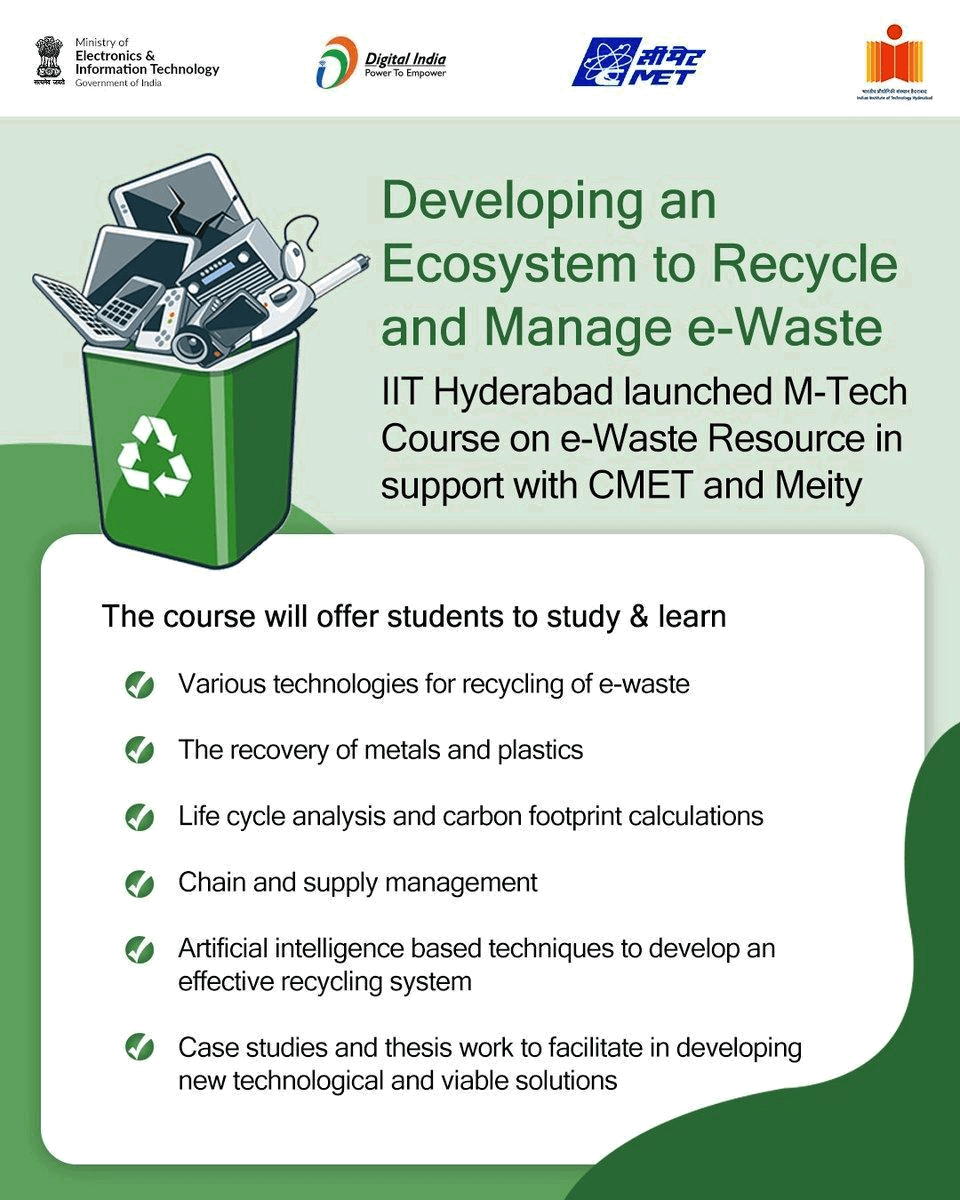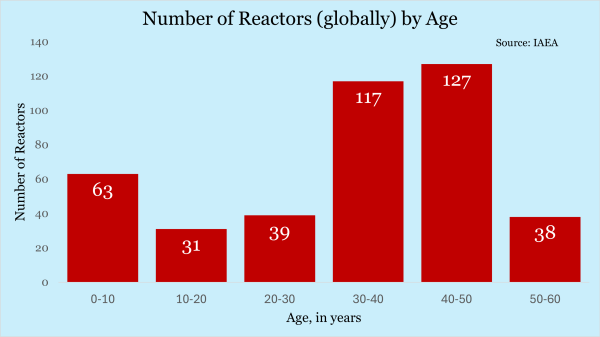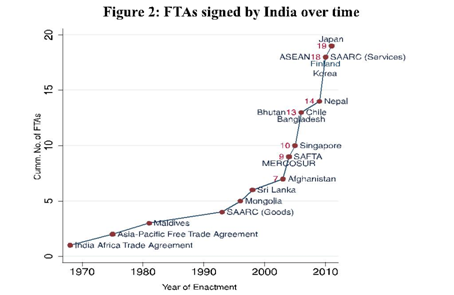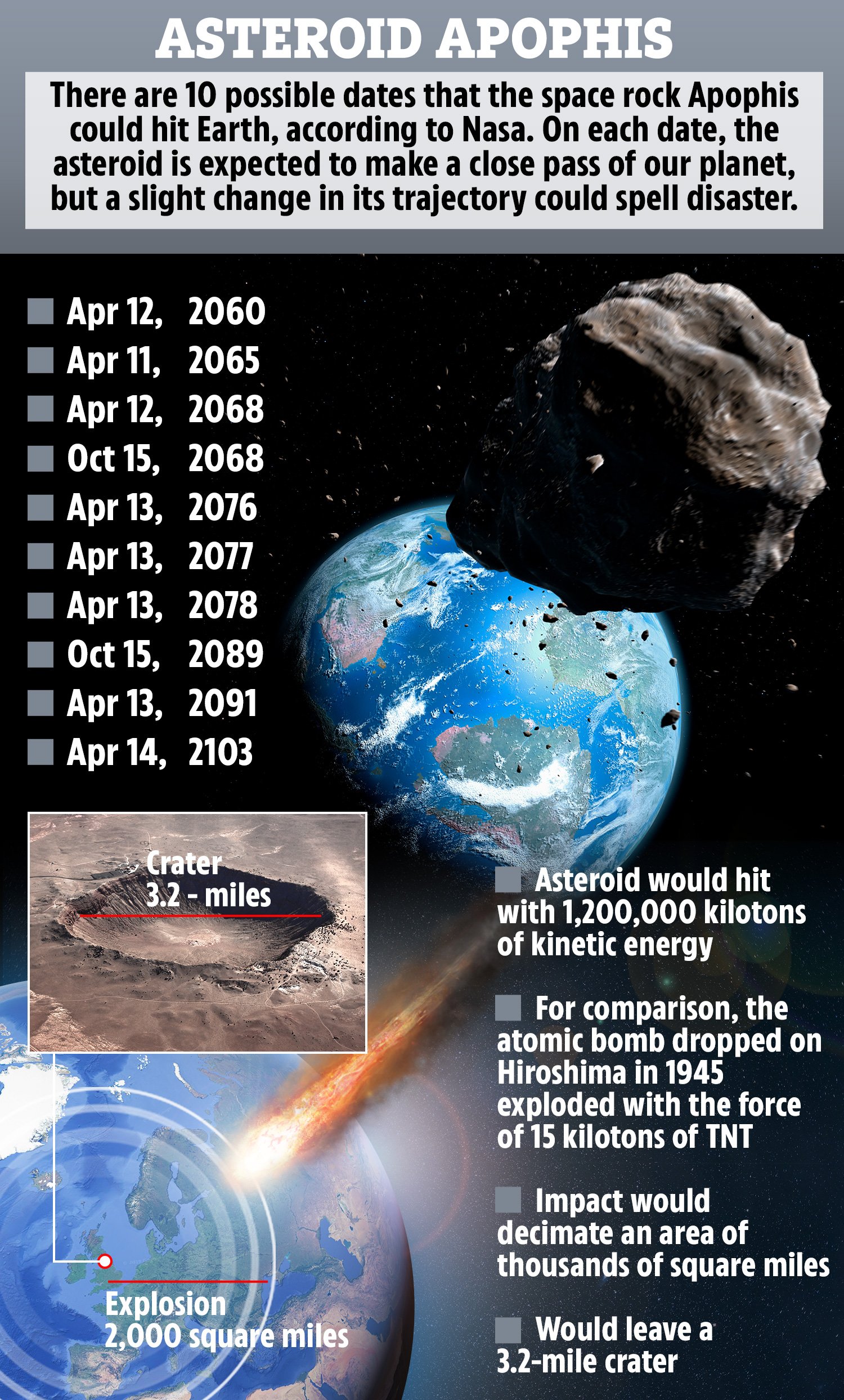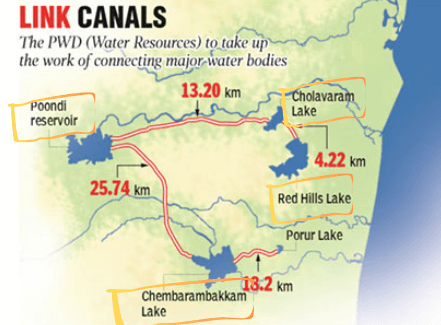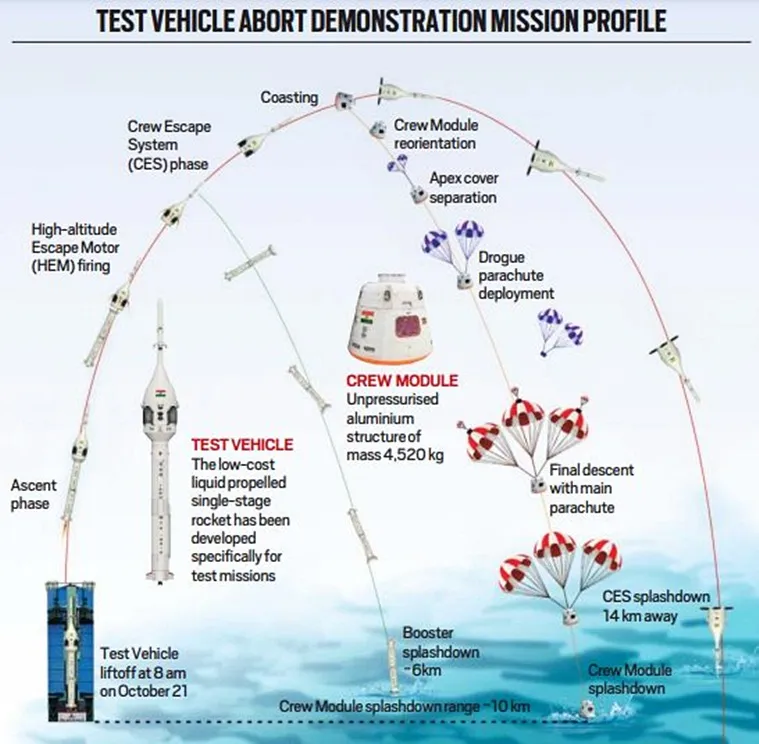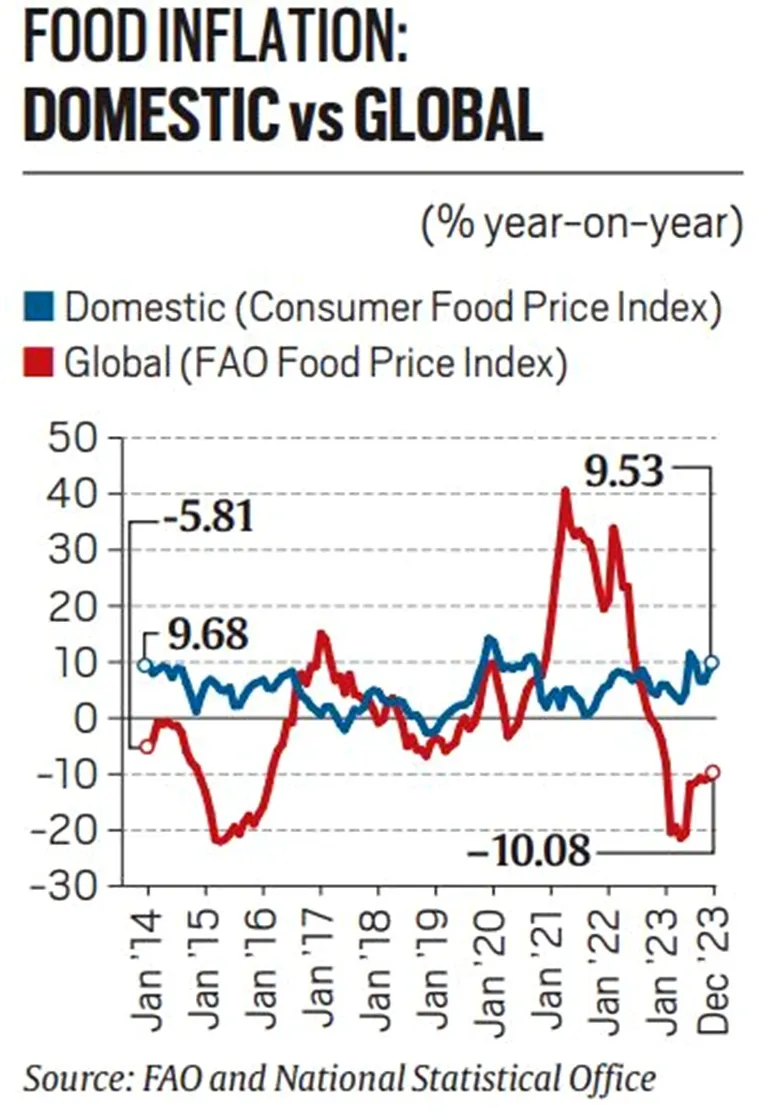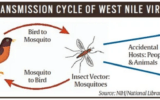
Climate Tipping Points
Subscribers of "Current Affairs" course can Download Daily Current Affairs in PDF/DOC
Subscribe to Never Miss an Important Update! Assured Discounts on New Products!
Must Join PMF IAS Telegram Channel & PMF IAS History Telegram Channel
Climate Tipping Points
- According to IPCC, tipping points are ‘critical thresholds in a system that, when exceeded, can lead to a significant change in the state of the system, often with an understanding that the change is irreversible.’

When will we reach the Tipping Points of Climate Change?
- In the early 2000s, there was a general consensus among scientists that most tipping points could be reached in the event of a 4C increase in global temperatures.
- However, more recent assessments found that exceeding 1.5C of global warming risks crossing several of these thresholds.
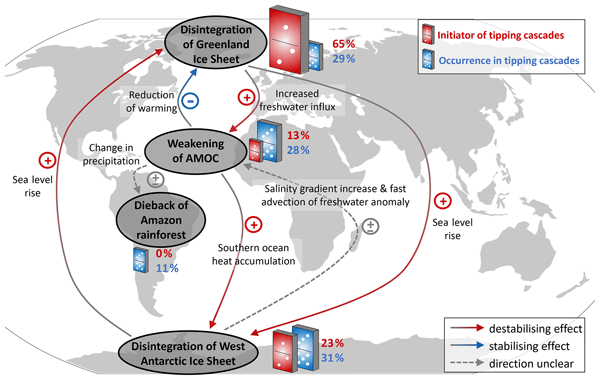
What Happens If We Reach the Most Pressing Tipping Points?
Greenland Ice Sheet
- As the world’s second-largest ice sheet, the Arctic holds enough water that, if melted completely, could raise sea levels by 7.2 metres.
- The Arctic ice sheet is warming 3 to 4 times faster than the rest of the world, adding almost 1mm to global sea levels every year.
- The melting of Greenland’s ice sheet is already occurring so rapidly that it is now the main factor in global sea level rise.
- In the past two decades, Greenland lost more than 5,100 billion tons (4,700 billion metric tons) of ice, an amount that is enough to flood the entire United States in half a metre (1.5 feet) of water.
Atlantic Meridional Overturning Circulation (AMOC)
- AMOC is a large system of ocean currents driven by differences in the density of water, which determines their temperature.
- It acts as a conveyor belt, redistributing heat throughout the Earth’s climate system by bringing it from the tropics in the Southern Hemisphere to Greenland and carrying cold water back south.
- Atmospheric warming, and increases in rainfall and ice melt, both make surface ocean water lighter, reducing its ability to sink at high latitudes and weakening the AMOC.
- A weakening of 24-39% is expected even before the tipping point is reached, something that could happen as early as 2100.
- A study published in 2021 found that AMOC is already at its weakest in over 1,600 years.

Amazon Rainforest
- As the largest tropical rainforest on the planet and home to about three million species of plants and animals, the Amazon produces about half of its rainfall by recycling moisture through evaporation and transpiration.
- Over the last 10 years, the rainforest experienced three “once-in-a-hundred-year” droughts.
- Further, deforestation has led to massive dieback, rainforests shifting from a carbon sink to a net source of greenhouse gases, as they currently emit a greater amount of CO2 than they can absorb.
Permafrost
- Permafrost holds the largest global carbon reserve from plants and animals that died and decomposed over thousands of years.
- As the climate warms and permafrost begins to thaw, carbon dioxide and methane are released into the atmosphere.
- While carbon dioxide concentrations last year were 2.4 parts per million (ppm) higher than in 2022, methane concentrations increased by 11 parts per billion (ppb).
- The spread of these highly toxic gases would add up to 0.3°C to global warming and could lead to humanity reaching other tipping points of climate change much faster.
|

Antarctic Ice Sheets
- The World Meteorological Organisation reported that temperatures in Antarctica have increased by almost 3°C over the past 50 years, with glaciers experiencing an accelerated retreat.
- Its mass losses of ice between 1992-2011 accounted for 4mm of sea level rise and almost 18% of the total global sea level rise in the period 2012-2017.
- By the end of the current century, the melting of the Antarctic ice sheets could contribute up to one metre to sea level rise.
Coral Reefs Die-Off
- Besides containing one of the most biodiverse ecosystems on earth, coral reefs:
- Protect coastlines from the damaging effects of wave action and tropical storms,
- Are a source of nitrogen and other nutrients for marine food chains,
- Assist in nitrogen and carbon fixing,
- Are a source of income for millions of people around the world,
- Generating the sand and rubble that maintain islands and cays.
- Scientists argue that reefs have already reached their tipping point and are at risk of being completely wiped out by 2050.





![PMF IAS Environment for UPSC 2022-23 [paperback] PMF IAS [Nov 30, 2021]…](https://pmfias.b-cdn.net/wp-content/uploads/2024/04/pmfiasenvironmentforupsc2022-23paperbackpmfiasnov302021.jpg)
